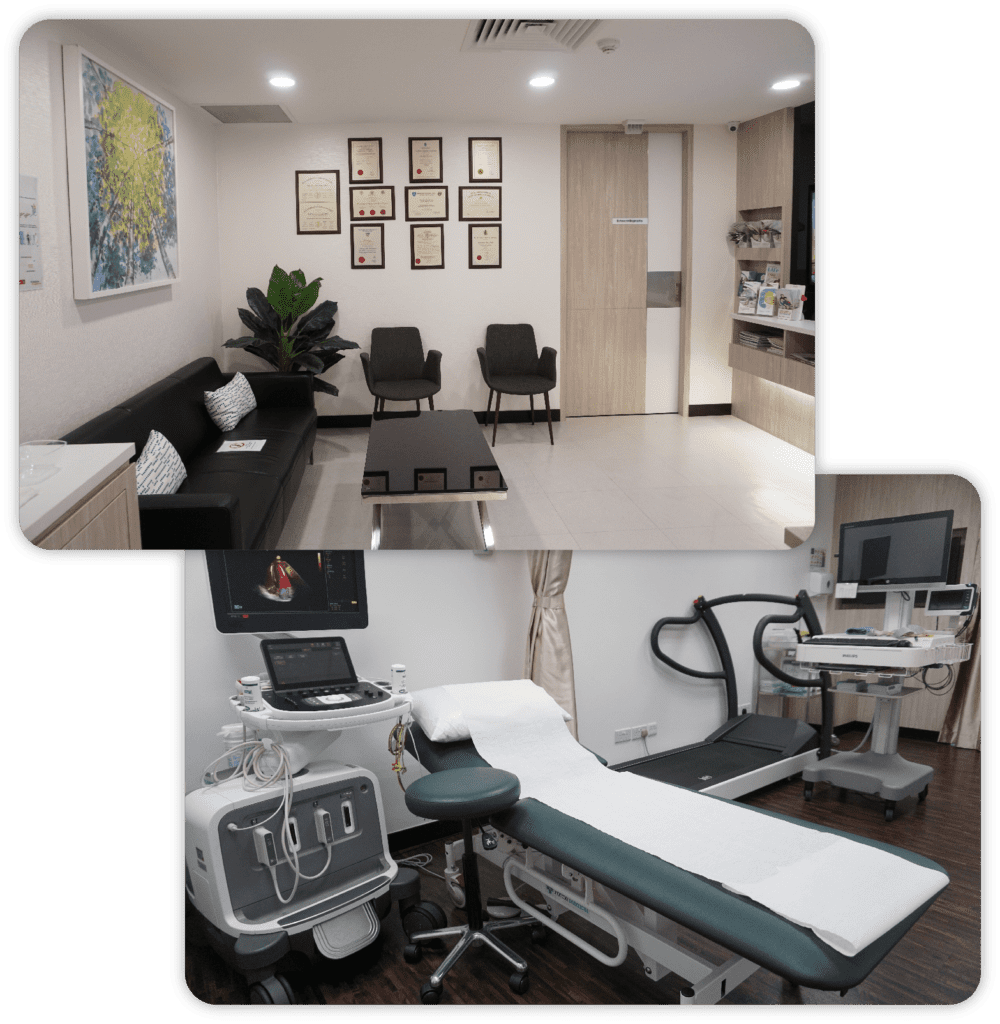
Do I need the operation?
Stent/ operation for coronary artery disease (CAD)?
Coronary artery disease (CAD) is clinically categorized broadly into acute coronary syndromes (ACS) which is a medical emergency or chronic coronary syndromes (CCS), which is a medical urgency when initially diagnosed.
CAD clinical course can have long, stable periods but can also become unstable at any time, typically due to an acute clot blocking the coronary artery caused by plaque rupture.
In ACS, stent implantation is usually indicated, provided there is no overriding contraindications, eg concomitant bleeding gastrointestinal tract thus not allowing for post stent dual anti-platelet therapy.
In chronic coronary syndrome (CCS), not all blockages need to be stented.
There have also been several studies since 2007 showing that in CCS, not all patients with stenting benefit more- in terms of reduced death risk- than those who adopted a healthy lifestyle and medications only without stenting.
There are certain situations when patient will benefit from balloon and stenting to clear blocked vessel(s) or heart surgery to bypass blocked vessels.
In these situations, the risk of premature death is reduced.
- Those with significant blockage in left main coronary artery.
- Those with multiple significant coronary artery blockages with weakened cardiac function or diabetes mellitus.
There are certain other situations when patient will benefit from stenting to unblock vessel. In these situations, the benefit of stent placement is to:
- resolve angina symptoms, allowing one to go back to their usual activities, thus improving quality of life or
- to reduce acute symptoms requiring urgent stent placement.
These situations include the following:
- coronary artery blockages that are significant. These are defined as follows
- There is significant pressure difference between pressures after and before the blockage. These pressures are measured during invasive coronary angiography with a Fractional Floor Reserve Pressure Wire.
- The coronary artery cross section area is small as determined by specialised imaging methods:
- Intravascular ultrasound (IVUS) or
- Optical Coherence Tomography (OCT).
- Heart symptoms persisting and not relieved with medications, thus affecting the quality of life.
- Patient has allergies or side effects to or unable to tolerate the heart medications to treat the heart symptoms.
- Patient wants a faster return to their prior active lifestyle.
Regardless, whether stenting or bypass operation is done, patient must adopt a healthy lifestyle and take their medications regularly to stabilize the coronary artery plaques, to prevent plaque size getting bigger, and thus reduce the risk of ACS and premature death.


Renal Denervation?
Poorly controlled hypertension is a major risk for stroke, dementia, and kidney failure.
Blood pressure control is important to reduce the risk of the above conditions.
There is now a method for controlling blood pressure by renal denervation. Renal denervation is a safe, minimally invasive, device-based therapy, specifically targeting and modifying the renal artery nerves with radiofrequency waves without permanent implantation of the device.
It can be used to treat patients with persistent elevated BP from primary hypertension despite medications. Patient should also have no significant renal impairment and suitable renal artery anatomy.
What to expect on your visit?
Prior to visit, the following can be done:
- prepare any medical reports and medication prescriptions that you may have. Soft copies of these reports can be emailed to us before the appointment.
On your first visit, our staff will assist you with registration, and basic health parameters- BP, height and weight-will be taken.
Do give us any medical reports and medications that you may have.
Next, our cardiologist will ask about your symptoms and take down your medical history. This initial discussion will be followed by an examination of the heart.
He may then order various diagnostic tests to investigate your heart in more details. Tests may include the following:
- Blood tests
- ECG
- Trans Thoracic Echocardiogram (TTE)
- Stress test
- CT coronary angiogram
Reasons for the test(s) will be explained.
Prior to the diagnostic tests, our staff will also advise on the cost of tests and estimated time to results for the tests.
In house test such as blood test, ECG, echocardiogram can be done on the same visit. Other tests will be arranged for you by our staff.
Once the test results are available, our cardiologist will explain the results and discuss treatment options with you.
This part of the consultation can be scheduled 1-3 hours or more later, or on the next day as a separate consultation.

Treatment Options
Treatment options are broadly categorised into lifestyle changes, medications and procedures.
Common procedures include Invasive coronary angiography (ICA), stenting or CABG, renal denervation or Rhythm Device implantation eg ICD, CRT-D
If for procedure, the common questions about them are tabulated below
|
Procedure
|
Costs
|
Hospital Stay
|
|---|---|---|
|
Invasive coronary angiography (ICA) with or without Balloon and Stenting
|
2-3 days
|
|
|
Coronary Artery Bypass Surgery
|
5-9 days
|
|
|
Renal Denervation
|
2-3 days
|
|
|
Rhythm Device implantation eg ICD, CRT-D
|
2-3 days
|
How long before I can fly back?
|
Procedure
|
Flying on commercial plane
|
|---|---|
|
Invasive coronary angiography (ICA) with or without Balloon and Stenting
|
Elective PCI-Balloon and Stenting – at least 3 days
As part of AMI treatment- At least 7 days |
|
Coronary Artery Bypass Surgery
|
10 -14 days or more
|
|
Renal Denervation
|
At least 3 days
|
|
Rhythm Device implantation eg ICD, CRT-D
|
2 days to 2 weeks or more, depending on clinical condition
|
When can I go back to usual activities?
|
Procedure
|
Complete recovery, returning to your preceding usual activity levels
|
|---|---|
|
PCI- Balloon and Stenting
|
2-4 weeks
|
|
Coronary Artery Bypass Surgery
|
9-12 weeks
|
|
Renal Denervation
|
1 week
|
|
Rhythm Device implantation eg ICD, CRT-D
|
1-4 weeks
|
The above items are just a guide, do contact us if there are any queries.
Gerard Leong Cardiology Clinic (GLCC) Heart Services
At GLCC, we provide an evidence-based and appropriate comprehensive range of heart tests, in a patient-centred and professional manner with the aim of providing a comprehensive evidence-based plan to reduce your risk of cardiac events, to let you live your life with a healthy or healthier heart!
